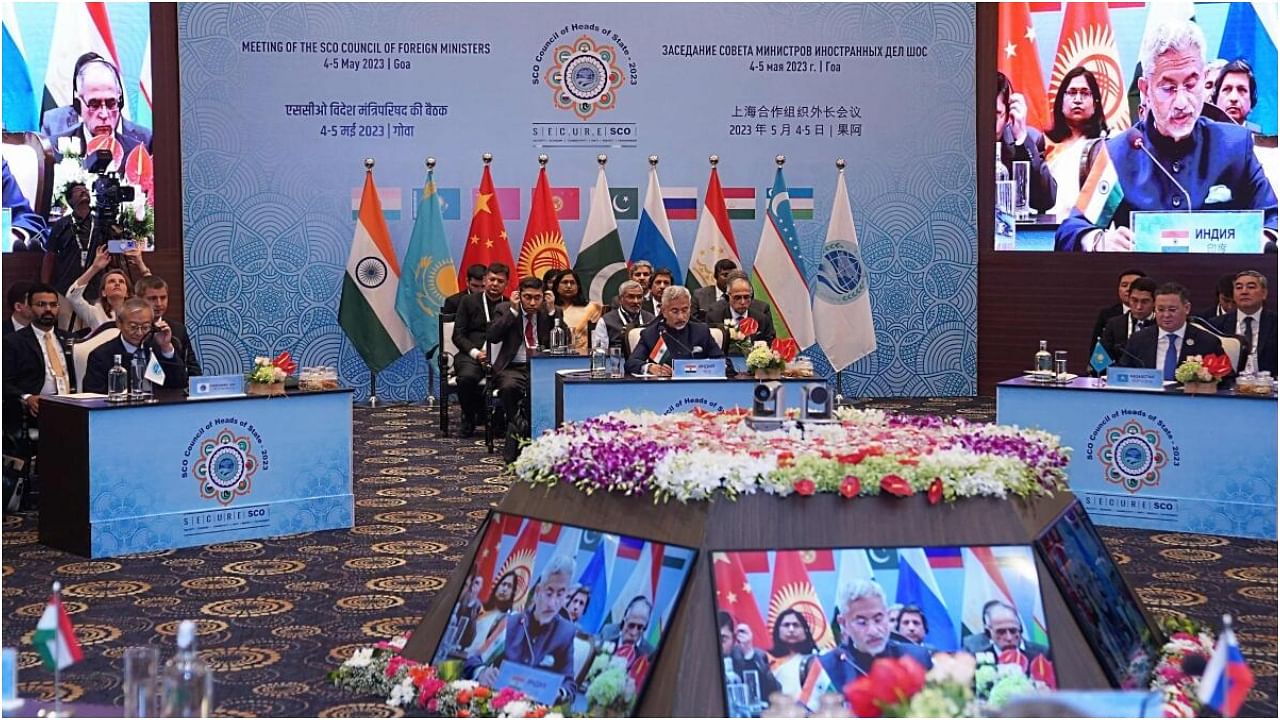
Within a week, India hosted two meetings of the Shanghai Cooperation Organisation (SCO)--the defence ministers’ meeting in New Delhi on April 28 followed by the foreign ministers’ meeting in Goa on May 4 and 5. Neither will be remembered for their outcomes when it comes to problems facing the regional grouping’s member-states. Once again, the SCO has shown itself to be little more than a talking shop. Of course, it provided visiting ministers and officials with opportunities to engage in bilateral talks. Talks that took place on the sidelines of the meetings in New Delhi and Goa grabbed the headlines more than the SCO meeting itself. Under its presidency, India has failed so far to shape the agenda or the outcomes of the SCO meetings. Whether it will be able to change this in the run-up to the New Delhi summit in July remains to be seen.
Analysts have blamed China’s domination of the SCO for the marginal influence that India wields in the grouping. This isn’t surprising. As one of the co-founders of the SCO, Beijing has ensured that its clout remains strong. Most member-states are close to, even dependent on China. Since Russia’s invasion of Ukraine, its proximity and dependence on China has grown. The two countries are opposed to Quad, and this has provided additional glue to their relationship. At SCO meetings, Moscow and Beijing have slammed Quad and indirectly targeted India. Importantly, with Sino-Indian relations fraying severely over the border dispute, China has acted to further isolate India in the SCO. But India cannot absolve itself of responsibility for its declining stature in the SCO. Its presidency was an opportunity to work on building connectivity and trade among member-states. Foreign Minister S Jaishankar could have raised this issue when asked by the media about relations with Pakistan. Instead, he harped on terrorism.
While India’s concerns over anti-India terrorism emanating from Pakistan have not diminished, pushing visiting Pakistani Foreign Minister Bilawal Bhutto Zardari to respond to India’s offer of cooperation on building Eurasian trade would have put Islamabad in a tight spot even as it boosted India’s image as a responsible global player. As host of the SCO meetings, India should have displayed a higher level of dignified diplomacy. The SCO is an important grouping with significant value for India. India’s ambition of positioning itself as an important player in Central Asia will require the multilateral cooperation that the SCO envisages. New Delhi will need to step up its diplomacy and rethink its strategy to make the SCO a useful forum to realise its interests.